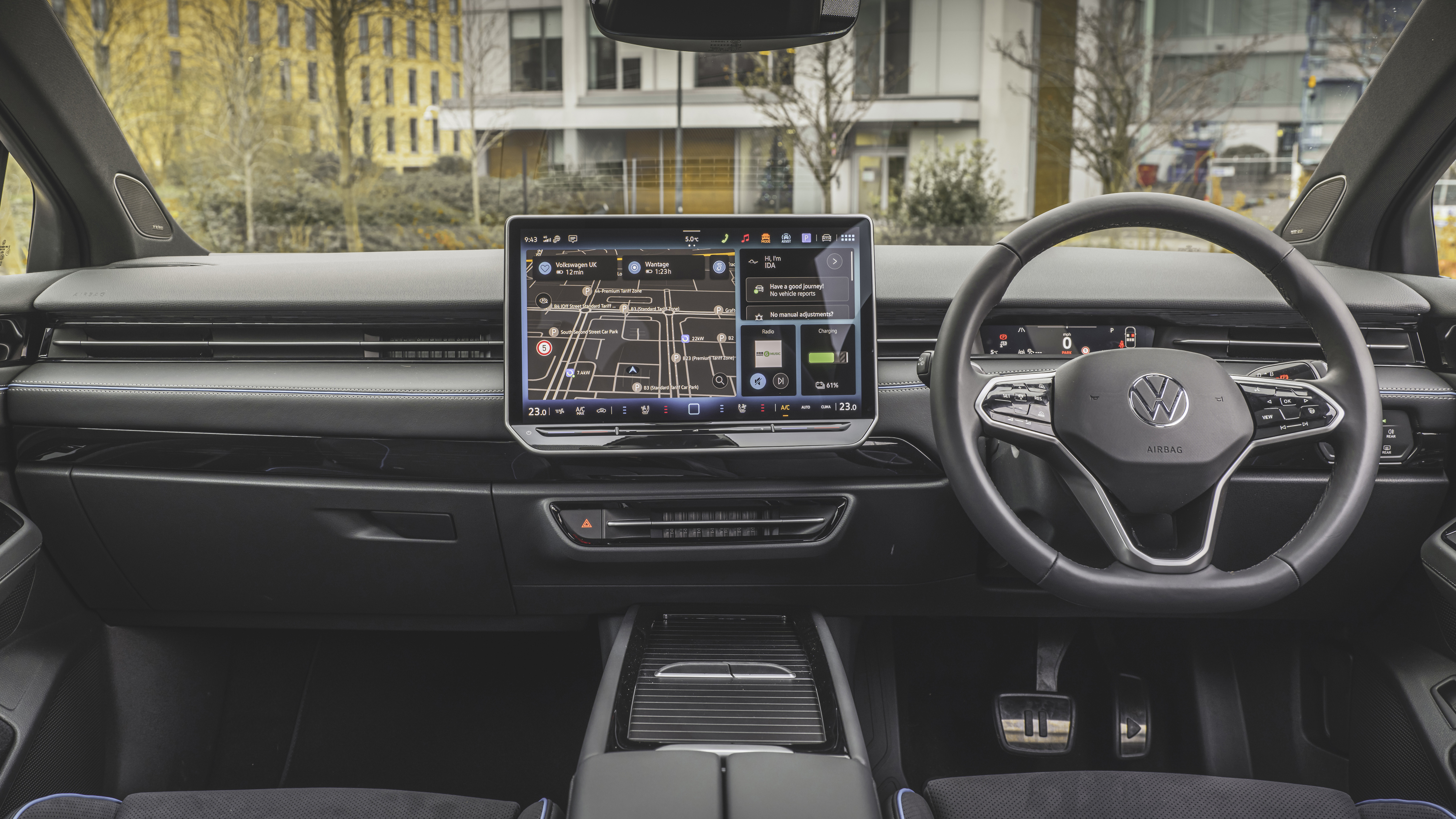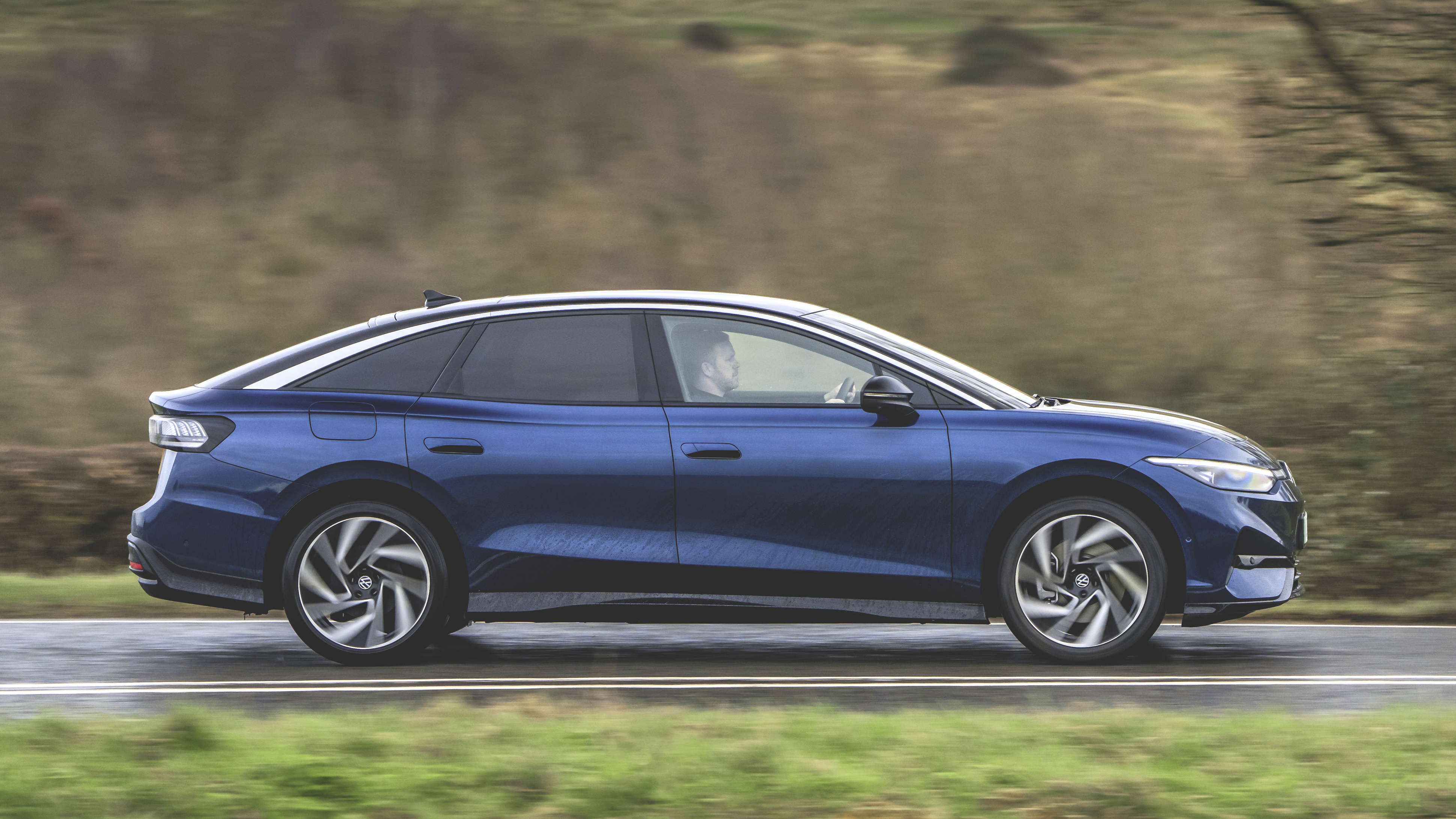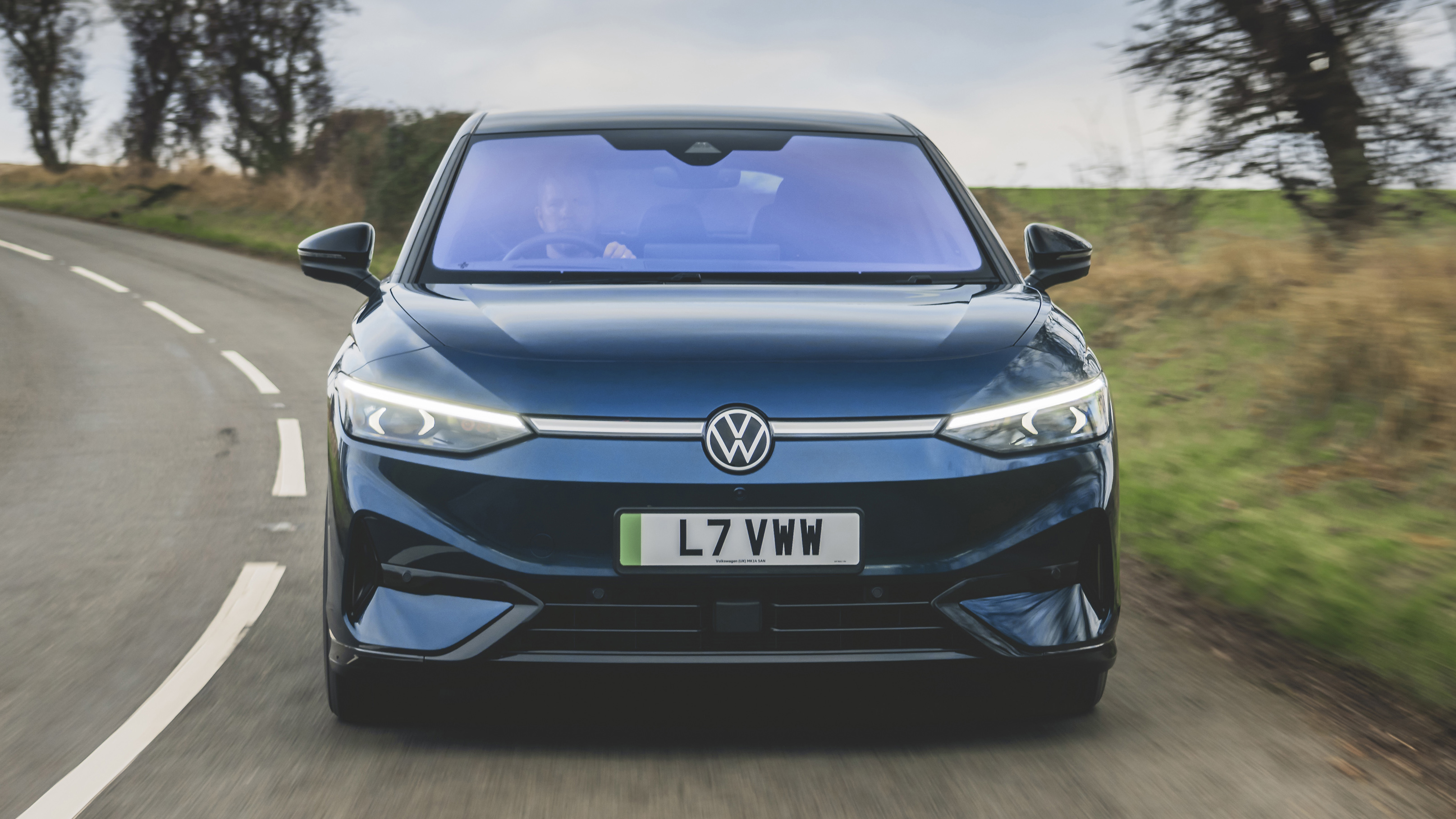
Buying
What should I be paying?
We'll keep this short and sweet: the ID.7 Pro Match is £51,005, the bigger-battery Pro S is £54,490, and the GTX is £59,110. Add £800 for the Tourer body.
For context, both the BMW i4 and Hyundai Ioniq 6 are cheaper. Remarkably you can pick up a refreshed Model 3 in rear-wheel drive form for just under £40k. And it's quicker. But it doesn't go as far in Standard Range form. The Long Range Tesla is another five grand.
VW's initially huge deposit contributions have receded since launch, so if you put £10k down on an ID.7 Pro you're looking at £480 per month over three years. 0 per cent APR though, which helps.
You get a whole bunch of kit as standard. Heated electric massage seats, the augmented reality HUD, 19-inch wheels, a heated steering wheel, Travel Assist, Park Assist, LED matrix lights and two-tone metallic paint all come with the base spec. A heat pump used to be a £1,020 option, but that's now free too. Good.
An optional pack adds the glass electro-roof and adaptive dampers, for £2,150 (half what it used to cost, by the way). Harman Kardon hi-fi and cooled seats, plus heated rear seats, come as an Interior Pack Plus for £2,000.
The GTX version adds 20in alloys (21s are an option), plus a number of those extras as standard. Not to mention glorious comfort seats finished in Artvelours microfleece, and various exterior styling enhancements to show off your inherent prowess to the outside world. Or words to that effect. Unless you're really sold on the kit, we'd stick to RWD.
Car warranty is three years/60k miles, and battery warranty is eight years/100k miles to 70 percent capacity.
Featured

Trending this week
- Car Review
Volvo ES90






